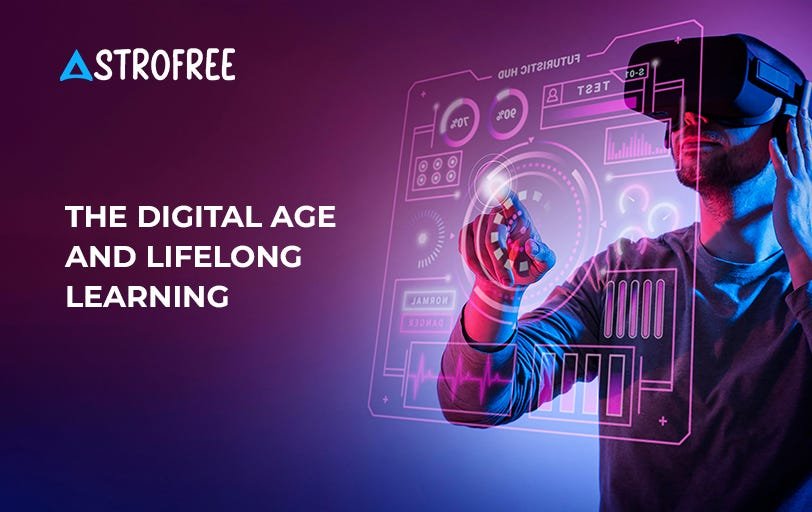The concept of lifelong learning has never been more relevant than in today’s fast-paced, ever-changing digital age. “Lifelong Learning in the Digital Age: The Role of Technology in Education” delves into the profound impact technology has on continuous education. From early childhood through to adult education, technology serves as a bridge to knowledge, a tool for engagement, and a platform for growth. This exploration sheds light on how digital innovations are redefining the boundaries of learning, making it a continuous, accessible, and dynamic journey for individuals around the globe.
The Digital Transformation of Education
The digital transformation of education marks a significant shift from traditional classroom settings to a more fluid, technology-driven approach. This section examines the catalysts behind this transformation, highlighting the integration of digital tools, online resources, and virtual learning environments that facilitate learning beyond physical classrooms.
E-Learning Platforms and Online Courses
E-learning platforms and online courses stand at the forefront of technology’s role in education, offering learners of all ages access to a world of knowledge. This segment explores the variety and depth of learning opportunities available online, from massive open online courses (MOOCs) to specialized platforms that cater to specific skills and subjects.
The Power of Mobile Learning
Mobile learning harnesses the ubiquity of smartphones and tablets to provide education on the go. This part of the article delves into how mobile apps and platforms make learning convenient, flexible, and personalized, enabling learners to access educational content anytime, anywhere.
Virtual and Augmented Reality in Education
Virtual and Augmented Reality (VR and AR) technologies are redefining experiential learning, offering immersive experiences that enhance understanding and retention. This section highlights how VR and AR are used in various educational contexts, from simulating historical events to exploring complex scientific concepts in an interactive manner.
Adaptive Learning Technologies
Adaptive learning technologies employ AI and machine learning to tailor the educational experience to the individual learner’s needs, pace, and preferences. This segment examines the impact of adaptive learning systems in providing a personalized learning journey that optimizes understanding and engagement.
Gamification of Learning
The gamification of learning applies game-design elements in educational contexts to motivate and enhance learner engagement. This part of the article explores how gamified learning environments make education more interactive and enjoyable, leading to higher motivation and better learning outcomes.
Social Media and Collaborative Learning
Social media and collaborative tools have transformed the landscape of learning by fostering community, discussion, and shared knowledge. This section investigates how these platforms facilitate peer-to-peer learning, mentorship, and access to global communities of learners and experts.
Challenges and Ethical Considerations
While technology offers unprecedented opportunities for lifelong learning, it also presents challenges and ethical considerations, including digital divide issues, data privacy, and the need for digital literacy. This segment addresses these concerns and the importance of navigating them to ensure equitable access to technology-enhanced education.
The Future of Lifelong Learning with Technology
As we look towards the future, it’s clear that technology will continue to play a pivotal role in shaping the landscape of lifelong learning. This concluding section speculates on emerging technologies and trends that promise to further empower learners, educators, and institutions in the pursuit of continuous education.
FAQs
- How has technology transformed traditional education?
- What are the benefits of e-learning platforms and online courses?
- How does mobile learning enhance accessibility to education?
- What role do VR and AR play in experiential learning?
- How does adaptive learning technology personalize education?
- What is the impact of gamification on learning engagement?
- How do social media and collaborative tools support learning?
- What challenges does technology pose to lifelong learning?
Conclusion
“Lifelong Learning in the Digital Age: The Role of Technology in Education” highlights the crucial role technology plays in facilitating continuous learning and development. As digital tools and platforms evolve, they offer innovative ways to access, engage with, and personalize education. Embracing these technologies, while navigating their challenges, is key to fostering a culture of lifelong learning that is inclusive, dynamic, and adaptable to the needs of learners in the digital age.
